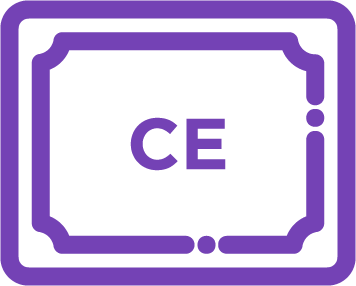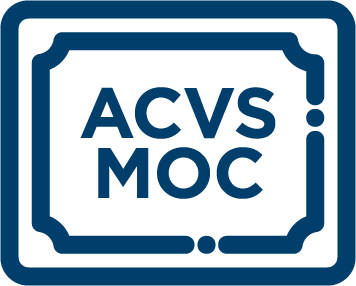
Recent Research Impacting Clinics Today
This seminar highlights research that is not only current (published within the last one-to-three years), but also has demonstrated impact within the field of study or clinical practice. The lectures are structured to allow time to thoroughly elucidate the rationale for the research, describe the research process, and both summarize and expound on the findings and future directions. Ample time is also scheduled for discussion following the presentation with the goal of facilitating the exchange of ideas as well as the potential for establishing connections between interested parties for future work on the topic.
Agenda
Steven Budsberg, DVM, MS DACVS, facilitates the following presentations:
- Kyla Ortved, DVM, PhD, DACVS (Large Animal), DACVSMR: Gene Therapy: The Future or the Foe of Veterinary Medicine
- B. Duncan X. Lascelles, BVSc, PhD, DACVS: Current Research on Identification and Treatment of Pain in Veterinary Medicine Part I
- B. Duncan X. Lascelles, BVSc, PhD, DACVS: Current Research on Identification and Treatment of Pain in Veterinary Medicine Part II
CE Credit
RACE Program #20-1244712 is approved for 3.75 hours of continuing education credits in jurisdictions which recognize the American Association of Veterinary State Boards’ (AAVSB) Registry of Approved Continuing Education (RACE). However, participants should be aware that some boards have limitations on the number of hours accepted in certain categories and/or restrictions on certain methods of delivery of continuing education. RACE is approved through September 13, 2026.
 Webinar Length: 3 hours 45 minutes
Webinar Length: 3 hours 45 minutes  CE Credits: 3.75 credits
CE Credits: 3.75 credits  MOC: 3.75 points
MOC: 3.75 points
Rates per individual webinar
ACVS/ECVS Diplomate/Emeritus Diplomate $206
ACVS/ECVS Resident $56
Veterinary/Other Professional $263
Student/Intern/Technician $113
Steven Budsberg, MS, DVM, DACVS (Moderator)
Professor of Surgery
University of Georgia
Dr. Budsberg received his DVM from Washington State University in 1983. He completed an internship at Angell Memorial in Boston and his residency in 1987 in small animal surgery at Michigan State University. Dr. Budsberg spent time at Louisiana State University before joining the faculty at the University of Georgia. Currently, Dr. Budsberg is a professor in the Department of Physiology and Pharmacology.
B. Duncan X. Lascelles, BVSc, PhD, DACVS
Professor of Surgery and Pain Management
North Carolina State University
After graduating from the veterinary program at the University of Bristol, U.K., with honors, in 1991 Dr. Lascelles completed a PhD in aspects of pre-emptive/perioperative analgesia at the University of Bristol. After an internship, he completed his surgical residency at the University of Cambridge, U.K. He moved to Colorado for the Fellowship in Oncological Surgery at Colorado State University. He is currently the Dr. J. McNeely and Lynne K. DuBose Distinguished Professor of Musculoskeletal Health at North Carolina State University College of Veterinary Medicine. He is board-certified in small animal surgery by the Royal College of Veterinary Surgeons, the European College of Veterinary Surgeons, and the American College of Veterinary Surgeons. He is director of the Comparative Pain Research and Education Centre (CPREC). His research program (Translational Research in Pain [TRiP]) is dedicated to answering critical questions about pain control and pain mechanisms through high quality, innovative research. His career has been focused on developing algometry methods (methods to measure pain) in spontaneous disease animal models (pets with naturally occurring disease), and probing tissues from well-phenotyped animals with spontaneous disease to understand the neurobiology, with a strong translational focus. The aim of his research is to improve pain control in companion animals, and facilitate analgesic development in human medicine. He has authored over 230 peer reviewed research papers and reviews and 500 research abstracts, as well as over 30 book chapters. He has a collaborative research program that focuses on the relationship between pain and cancer progression, and the neurobiology of oral cancer pain.
Kyla Ortved, DVM, PhD, DACVS (Large Animal), DACVSMR
Associate Professor of Large Animal Surgery
University of Pennsylvania
Dr. Ortved is an Associated Professor of Large Animal Surgery at New Bolton Center, the University of Pennsylvania, in Kennett Square, PA. She received her DVM degree from the University of Guelph in 2006 and completed her large animal surgery residency at Cornell University in 2010. She became a Diplomate, American College of Veterinary Surgeons in 2011. Following her residency, she obtained a PhD in equine cartilage repair in June 2014 at Cornell University and joined the faculty at Cornell Ruffian Equine Specialists in July 2015, where she has been an active equine surgeon. In January 2016, Dr. Ortved became board-certified by the American College of Sports Medicine and Rehabilitation. She joined the faculty at New Bolton Center in February 2016 as a large animal orthopedic surgeon. She brings her research program in orthopedic disease to New Bolton Center, where she will continue to pursue gene and cell therapies for improving cartilage repair and preventing osteoarthritis.


